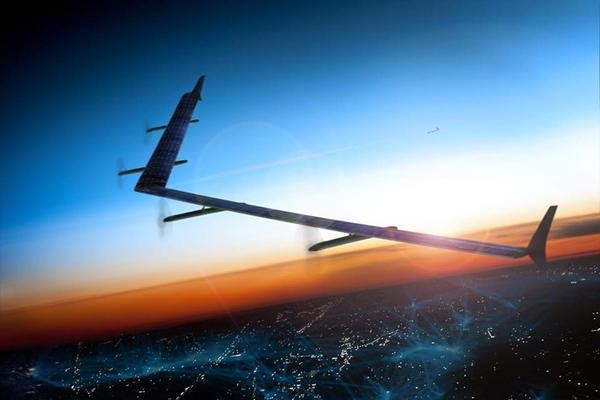Remote areas would soon have internet connection when Facebook deploys its full-scale drone that it recently completed. The 600-pound plane, with a wingspan of a Boeing 737, will hover between 60,000 and 90,000 feet.
At that altitude, it is higher than commercial jet's 30,000 feet and the drone would not be affected by weather disturbances, said Yael Maguire, Facebook engineering director of connectivity, reports Reuters. For the plane to float, Facebook would attach helium balloons.
It took Facebook 14 months to build the drone capable of staying in the air for 90 days. To preserve the plane's energy, the drone will hover 90,000 feet at day and 60,000 at night.
The drone, to be pilot tested in the US, is part of a two-pronged approach by Facebook to expand internet use. With Aquila, which includes the drone, the first approach targets reaching 10 percent of the U.S. population that is not yet connected. The second approach aims for the larger two-thirds of the global population with unreliable connection through the launch in 2014 of Internet.org.
With these measures, plus teaming up with phone carriers that would offer free access to Facebook, membership in the world's most popular social media site is expected to further expand beyond its 1.49 billion reach.
Facebook Vice President of Engineering Jay Parikh explains, "Our mission is to connect everybody in the world. This is going to be a great opportunity for us to motivate the industry to move faster on this technology."
The company has no plans of selling the drones, but it targets to deploy hundreds of drones, reports AFR.com.
Another tech giant and Facebook's competitor, Google, has its own internet expansion venture called Project Loon by sending high-altitude balloons. Among the countries where Google would pilot it is in Sri Lanka which signed this week an agreement with the company.



























